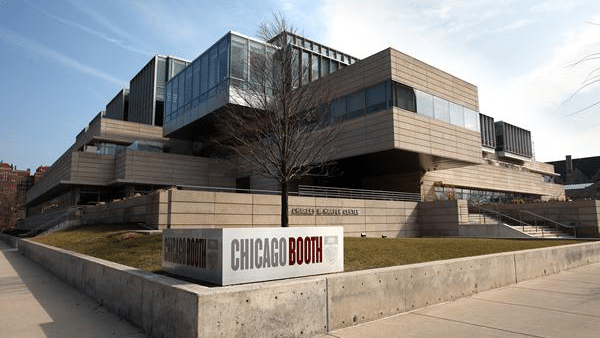How do I research MBA programs?
Which business schools are a good fit for me?
If you’re thinking about applying to an MBA program, it can be overwhelming. There are so many options and so much information out there! What makes one school better than another? How do I research MBA programs to determine which ones are a good fit for me- M7 schools like Harvard Business School, Stanford Graduate School of Business, Wharton School, Columbia Business School, etc., or top European schools like INSEAD, London Business School, Oxford, etc.? And what factors should I consider when looking at individual schools, including their ranking and reputation? We’ve got answers to all these questions–and more!

The Booth MBA - University of Chicago
The first step in deciding which graduate schools are right for you is to figure out what you hope to get out of your MBA. Is it a career-oriented program? Do you want to work in finance or consulting? Or perhaps, will you pursue an entrepreneurial path that requires a program with access to alumni and start-up community resources?
Once you have determined your short and long-term goals, the school research begins. When deciding which business school to attend, you need to take into account your personal goals and interests. You should consider the following factors:
- What are my strengths? How do I feel about my current career path? What types of jobs would interest me in the future?
- Specializations or concentrations: If you have a particular interest or career goal in mind, look for MBA programs that offer courses focused in that area. For example, if you want to work in finance, look for programs with a strong finance or accounting reputation and curricula.
- Learning style: Different MBA programs may have different teaching styles or formats, such as case-based learning, lecture-based courses, or experiential learning. Consider your preferred learning style and look for programs that align with it.
- Culture: MBA programs can have vastly different cultures, from highly competitive to collaborative and supportive. Consider the culture of each program and determine if it aligns with your personality and goals.
- Location: Location can be an important factor for many MBA students, particularly those with family or other commitments. So do consider- where do you see yourself working and living? Where do you want to live post-grad? Where are most jobs in your field located?
- Rankings: MBA program rankings are typically compiled by reputable organizations such as the U.S. News & World Report, Bloomberg Businessweek, and the Financial Times. These rankings evaluate the quality of MBA programs based on various criteria, including:
- Reputation: The school’s reputation among business professionals and academics
- Faculty: The quality and experience of the faculty members
- Curriculum: The breadth and depth of the curriculum, including the availability of specializations or concentrations
- Career Placement: The success of graduates in finding jobs and advancing their careers after graduation
- ROI: The return on investment for the program, including factors such as tuition, fees, and expected salary after graduation
- Networking: You may also want to check out the social media accounts for each program. If there are any alumni from previous classes who are still working in the industry where they studied MBA programs (e.g., finance), they may be able to give insight into what kind of experience people should expect during their time at an organization like theirs; this could help narrow down which schools may be right for you as well! The alumni network is another great place where one can find out more about different areas within an organization’s industry verticals by connecting directly with someone who has already worked there before.
We hope that this article has helped you determine how to research MBA programs. We understand that it can be a difficult task, but we hope that the information provided here will help you along your journey. Remember, the best way to prepare yourself for an MBA program is by doing your research and finding out what factors matter most in terms of career success and job satisfaction. Educating yourself on what factors matter most will not only help you make better decisions about where to apply but also give you an edge over other applicants who have not taken time out of their lives yet! We at ARINGO have helped thousands of candidates get into top business schools and many with substantiate scholarships. Contact us today: https://aringo.com/mba-process-registration/ to successfully secure a seat in the top business schools of the world.
